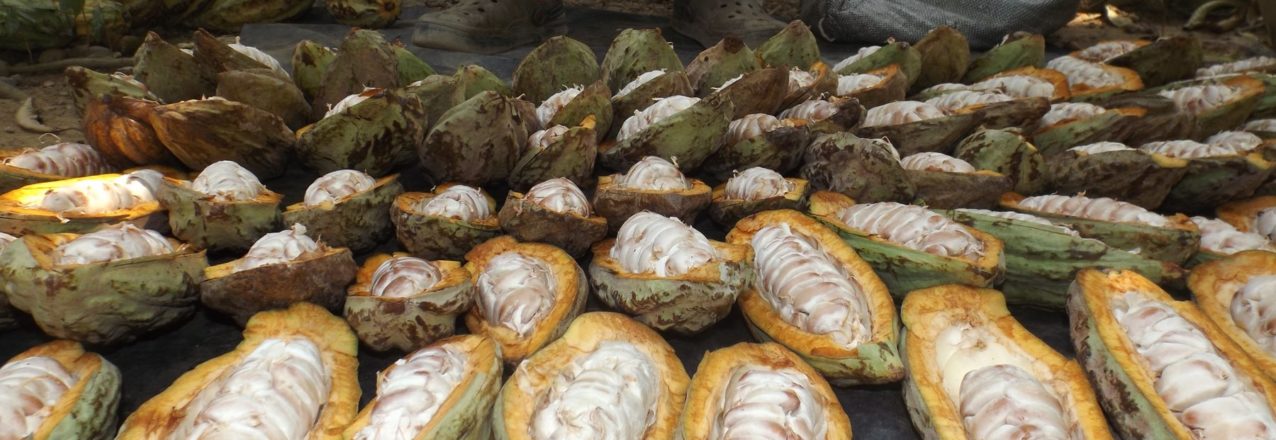USAID is facilitating a public-private cacao partnership in Northern Colombia to improve the livelihoods of about 500 families, including victims of the conflict.
DISPLACED BY THE VIOLENCE
Making a living off of cacao at age 51 was not part of Nays Mora Cohen’s life plan. With yuca, corn, and avocado crops and a herd of cattle, she dreamed of living on a sustainable farm in the village of El Hobo, in the lush hills of Montes de María. When the violent factions of Colombia’s conflict became the de facto ruling authority of the region, she never imagined that she or her family would also lose their land.
Mora tells the story about how first she had lost a large portion of her cattle to the groups, and then ran the risk of the guerillas recruiting two of her children. The violence and the death of one of her field workers forced her family to move to nearby El Carmen de Bolívar after. They had no home so they set up as squatters in the makeshift homes on the outskirts of town, catering to displaced people.
“After being gone for nine months, I returned, but they killed a friend of mine. I got scared and left again, but I could only take six chickens. The psychological and financial impacts were big for me,” Mora recalls while choking back tears.
El Carmen de Bolívar has 160,000 inhabitants, and one of every three of them is a victim of the armed conflict. Most of these victims were displaced from their lands and forced to leave behind a stable life based on food production and living off the land. For many, the avocado was the most important cash crop.
Due to abandonment, poor tree management, and fluctuations in the market, those same avocado farms have diminished over the last few years, and this has led to the introduction of crops that are more adaptable to the region, such as cacao, offering market opportunities that can generate stable incomes.
AN ALTERNATIVE: CACAO
In 2016, Mora and other farmers got the chance to improve their cacao operations when the USAID-funded Land and Rural Development Program facilitated a public-private partnership (PPP) in the cacao value chain for 500 campesino farmers in the Montes de María. The PPP takes a sustainable approach to reinserting these cacaoteros in the region’s rural economy. Valued at over $16 billion pesos (US$6.6 million), the PPP is designed to strengthen productivity and quality, expand cultivation areas, and establish direct relationships with reliable commercial partners.
As part of this partnership, governors’ offices and private partnerships have already trained more than 150 people on good agricultural practices and on improving post-harvesting and storage techniques. Among those who have received training are growers and officials from municipal government entities, such as the Secretariat of Agriculture.
“People are very excited about this PPP. Asprocam is making progress because the National Chocolate Company helped guide us and supported us a lot,” Mora says, who is also a member of Asprocam (the “Montes de María Farmers’ Association”), a group of cacao farmers that has sold 17 tons of cacao since the partnership was established.
Like Mora, the majority of the participating farmers—from seven cacao farmers’ associations—are victims of the conflict, and at least ten of them are currently involved in the land restitution process.
“The focus of the program is to support local governments and offer a range of economic alternatives, especially for those who were displaced and are just returning to their farms with their pockets empty,” says Anna Knox, director of the USAID Land and Rural Development Program.


